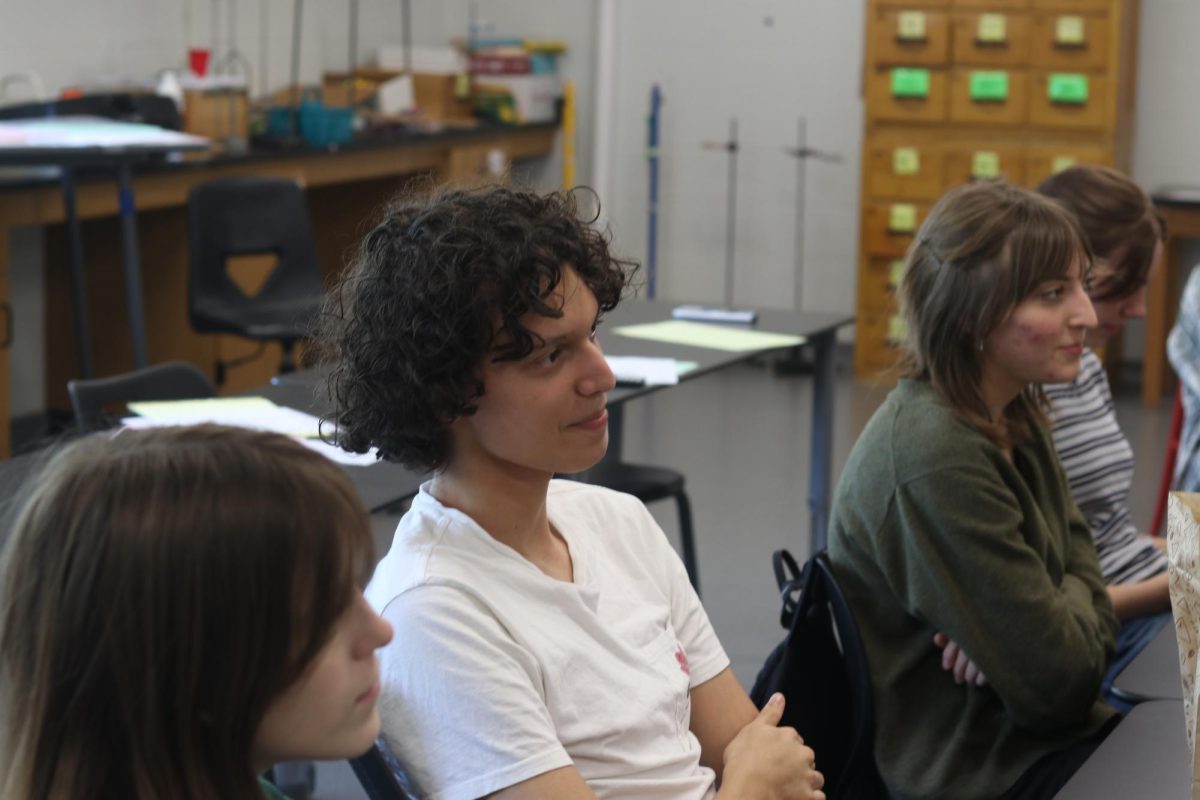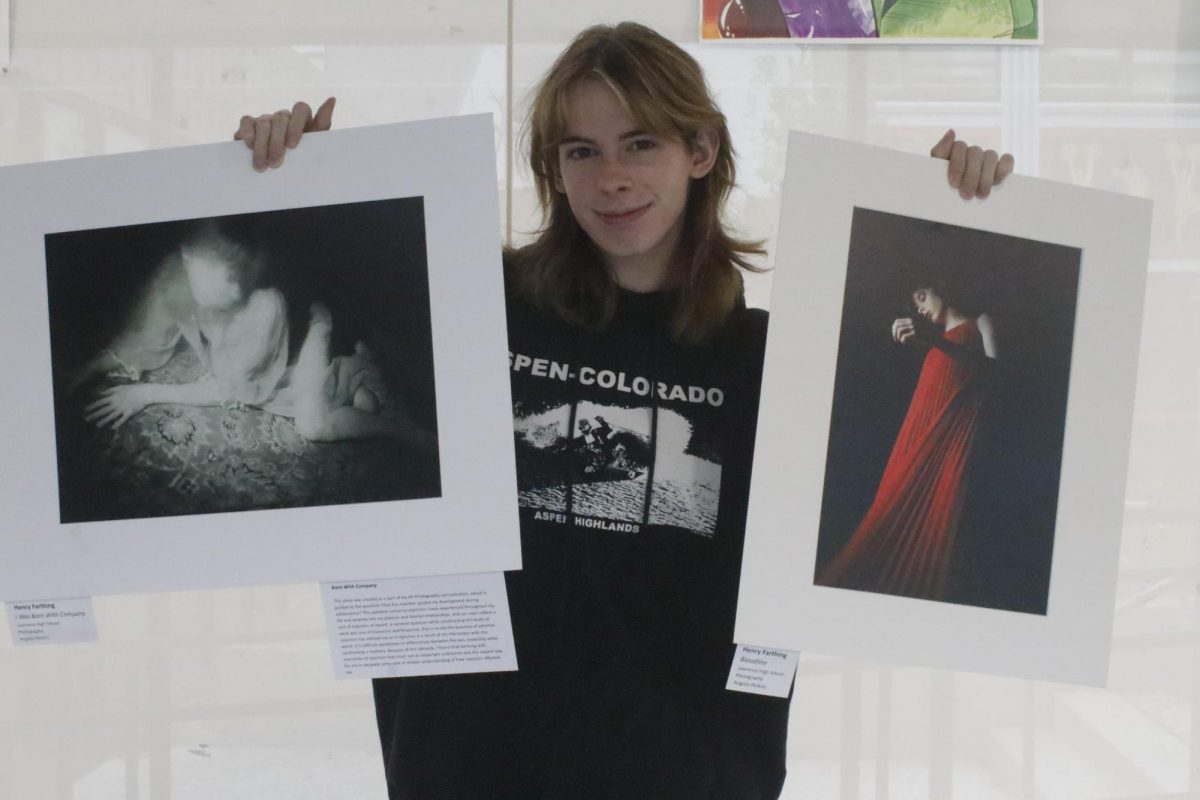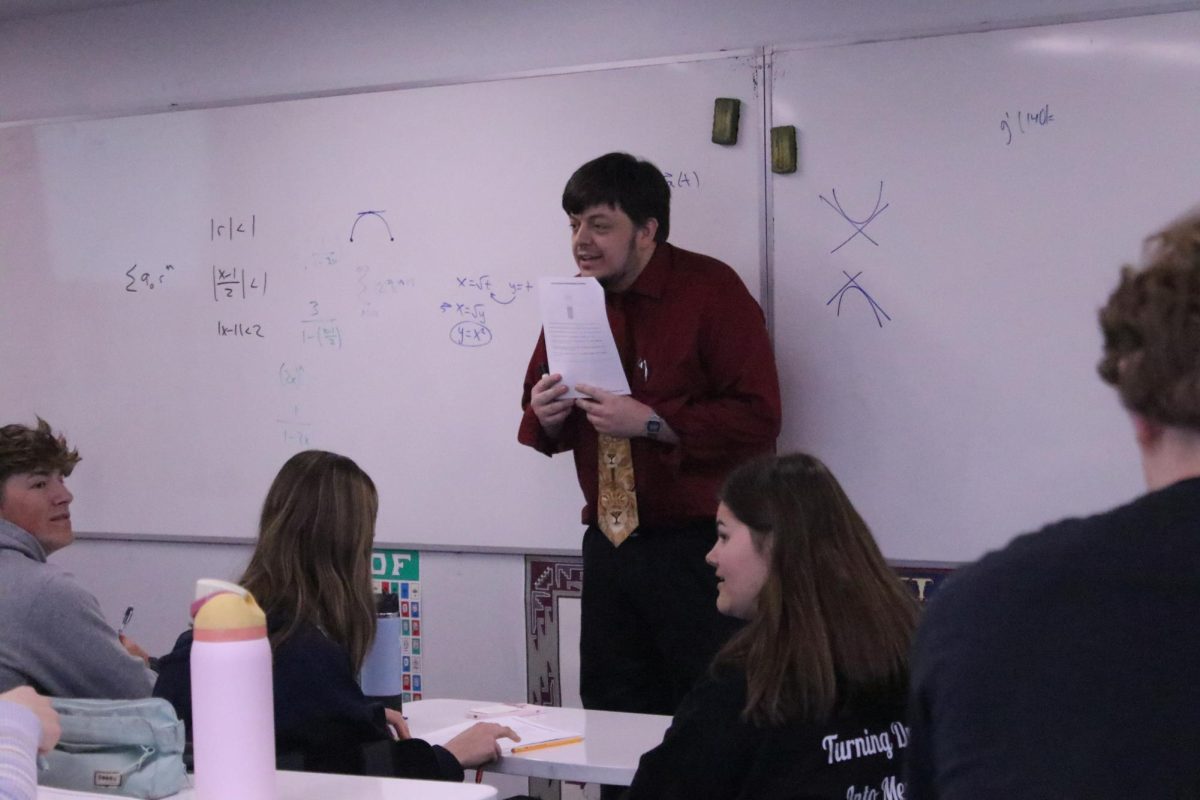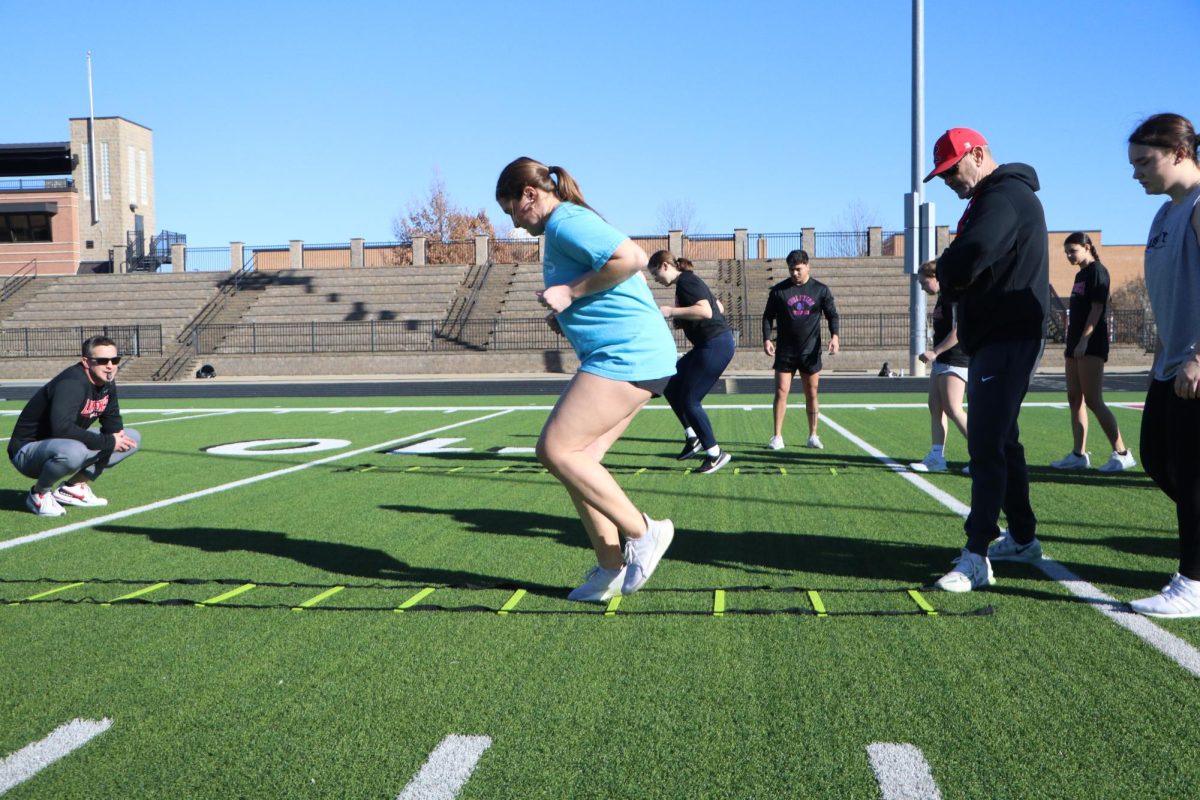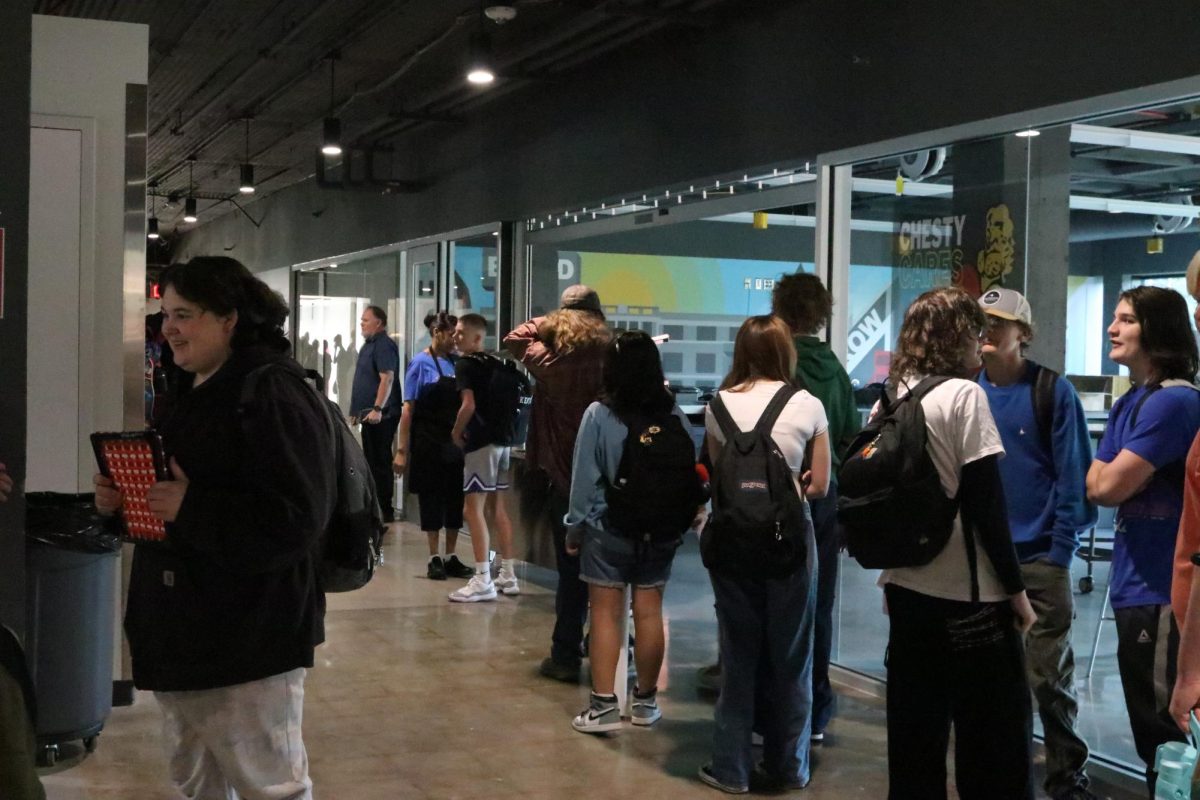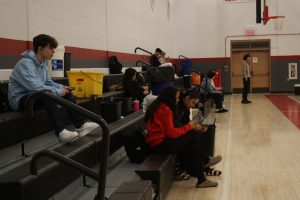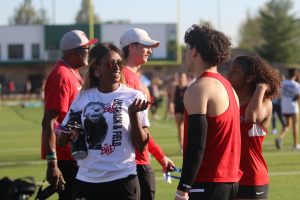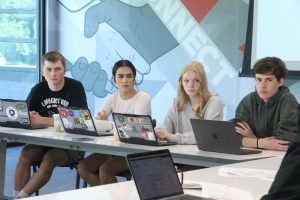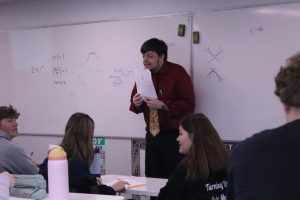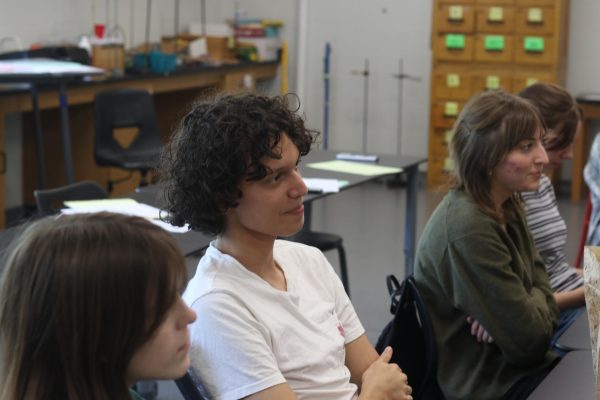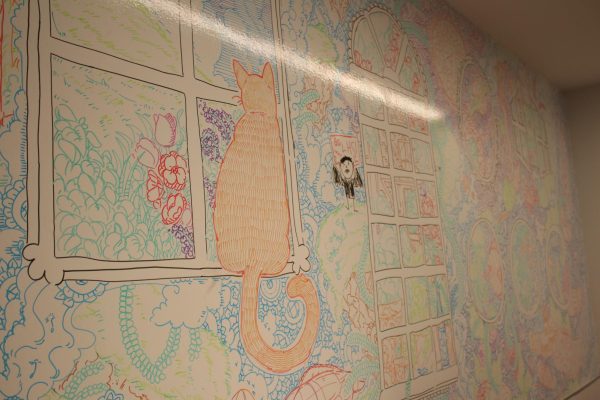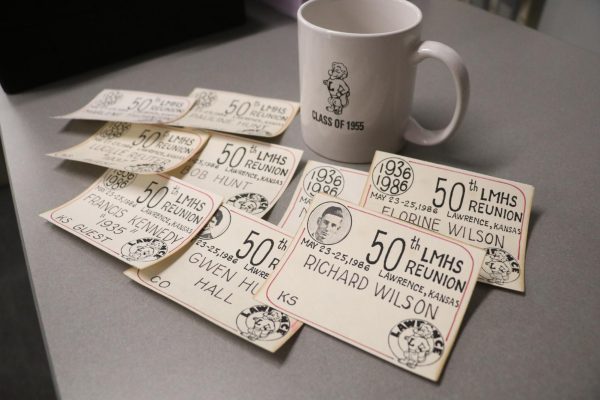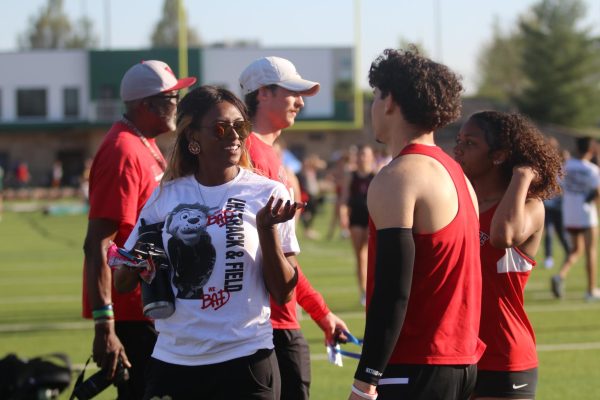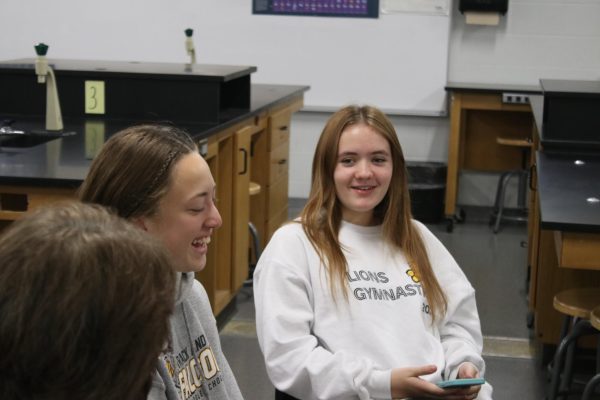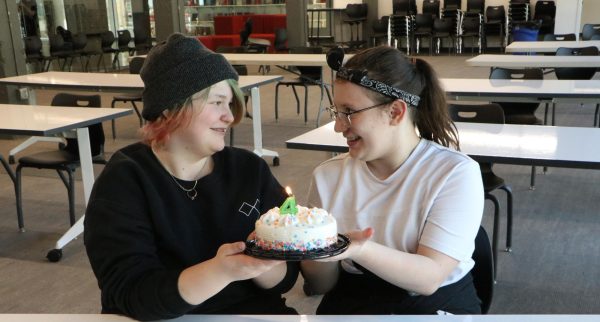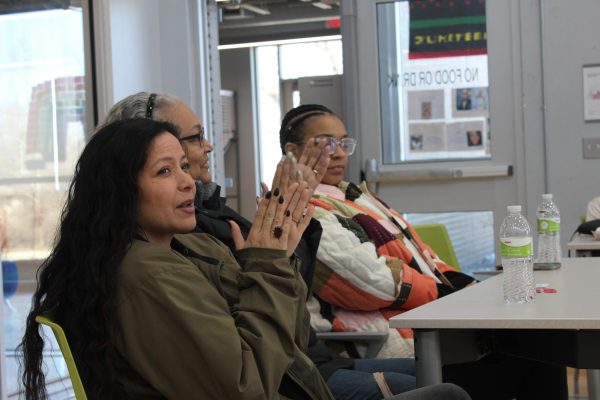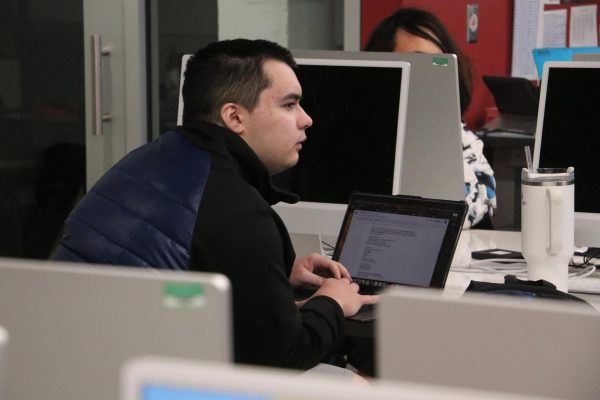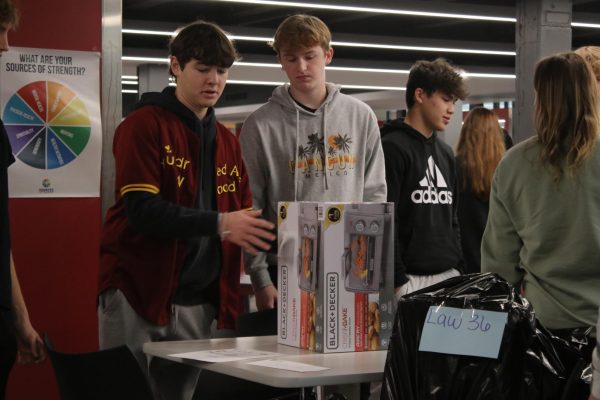Powwow makes comeback
Inter-Tribal Club brings a Native American tradition back
April 30, 2014
The Inter-Tribal Club held a powwow on April 12 for the first time since 2011.
“A powwow is a gathering of people,” senior Kaseani Stands said. “It’s to have a good time and reminisce about the past.”
The club held powwows before 2011, but lacked a sponsor to help organize its usual activities in recent years. This year, Andrea Spotted Horse has stepped up as a club sponsor and helped organize the powwow. Spotted Horse works for the Native American Student Services at Centennial Elementary School.
“When you pick a date, you have to think about the other powwows that are [being planned] too because you don’t want to overlap with any of them,” Spotted Horse said.
The University Of Kansas and Haskell Indian Nations University have been known to hold powwows as well, but this year, KU canceled its powwow. Those in charge worried about attendance due to conflicting events. Haskell, however, according to Spotted Horse, has about four powwows a
year — two of which focus more on the Haskell students themselves and the other two are open to the public.
Planning the powwow was no small task for the Inter-Tribal Club.
“You have to get like the head staff, which means someone who runs the powwow,” Stands said. “The emcee, someone who announces during different dances; the head drum group; the main drummers; and vendors.”
In order to hold the powwow, the club had to raise sufficient funds.
“It [takes] about $2,000,” Stands said. “Most of it comes in from our taco sales. We get like $900 every time.”
To earn this money, the club sold tacos on Haskell’s campus. During the winter, members also sold scarves. The money pays performers and travel costs, as well.
“[It’s] for travel time, too,” Spotted Horse said. “Travel, hotel, meals. It covers all that stuff.”
This year, the two heads of staff didn’t have to travel far, however. These titles belong to Lawrence High seniors Quanah Wilson and Altethia McKinney.
“It’s an honor given to me by whoever starts the powwow, and this year since I’m a senior and I’m graduating, the honor was given to me and since I do dance,” Wilson said. “What it means is that I’m being recognized for my actions and what I’ve done. I kind of lead as well, but it’s just an honorary title mainly.”
Though Powwows have long been a part of Native American tradition, they have been slightly altered.
“We’ve been modernizing in the events in the powwow. There’s like street dancing, you can do that and win prizes,” Stands said. “There’s the potato dance where you hold a potato [on] your forehead and you do everything they say like ‘hop on one leg’ and what not.”
The powwow held in the west gym on April 12 was open to the public.
“That’s actually one of the huge misconceptions that people have is that it’s natives only,” Spotted Horse said.
The powwow was meant for anyone to come and experience a piece of Native American culture and have a good time.
“It’s welcoming,” Stands said. “It’s a warm feeling. You walk in and you hear the powwow drums and the announcer going on. It’s busy. Nobody wants to be lonely. You go there and you know you’re gonna see somebody there. It’s a really friendly atmosphere.”



